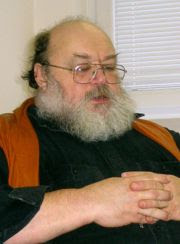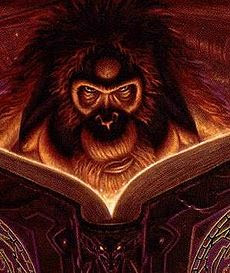Fantasy is a genre based on magic and other supernatural forms like
mythical creatures and gods. Same as in horror or sci-fi literature,
typical for fantasy literature is its milieu and props. The story is usually
placed to a world, that has either no or least connection to our world.
Sometimes even an alternative world is created.
The origin of the fantasy literature comes from old legends and myths (Greek, Celtic).
Typical fantasy literature started to appear in the 19th Century. In the 20ties
of the 20th Century fantasy literature became known from Pulp Magazines.
Those were and still are quite cheap magazines with not only fantasy,
but also adventure novels, westerns, horrors and crime stories.
In Weird Tales (Pulp magazine) Robert Ervin Howard introduced
his hero Conan the Cimmerian. J.R.R.Tolkien had a great deal in making the fantasy
literature very popular. His Hobbit and most of all the Lord of the Rings became
the most famous books. Tolkien´s friend C.S.Lewis is the author of the Chronicles
of Narnia, the tales from the alternative world.
 Fantasy subgenresAlternate history
Fantasy subgenresAlternate history - could be a subgenre of sci-fi, but where magic
works and legendary creatures come alive, it becomes a fantasy
subgenre
Comic fantasy - this subgenre skits ideas and motives of the fantasy
in a better or worse quality
Heroic fantasy - the hero of this subgenre is usually on the quest
and carries one or more magical items
High fantasy (Epic fantasy) - epic struggle between good
and evil fantasy worlds with a moral tone
Sword and sorcery – is concerned more on action and muscels, the hero is
usually immoral and his/her motivation goes for their own profit
Urban fantasy - takes place in an urban estate, where magic sneaks

from the fantasy world
Other subgenres - Dark fantasy, Fairytale fantasy, Steampunk,
Prehistoric fantasy
Recommended recent authors and their books:Sapkowski, Andrzej: Witcher
Pullman, Philip: His Dark Materials
Novik, Noemi: His Majesty´s Dragon
Pratchett, Terry: Discworld series
Chadbourn, Mark: The Age of Misrule series
Clarke, Susanne: Jonathan Strange & Mr Norrel
Gaiman, Neil: Stardust
Rowling, Joanne: Harry Potter













